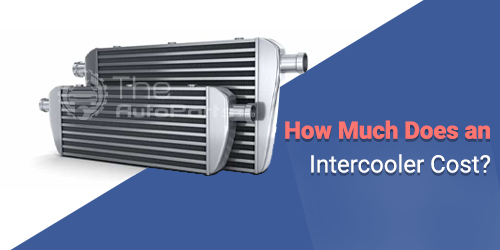The thought of installing an intercooler crosses every driver’s mind planning to upgrade his car. The car owner somehow delays this installation as an intercooler purchase would burn a hole in his pocket. This article gives complete information about the intercooler and the turbo intercooler cost, which must be considered before buying the car component.
What is an Intercooler?
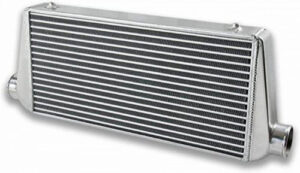
An intercooler is a device that is devised to cool the air entering the engine of the car. These are primarily found in turbocharger or supercharged vehicles. As the air moves towards the engine, the intercooler is responsible for bringing its temperature down, thereby preventing engine denotation. The air becomes less dense as it moves towards the intake manifold and makes the air to fuel ratio rich in cylinders. The output power surges during this process.
Classification of Intercoolers
The automobile industry comes with a variety of intercoolers. It is vital to get entire information about each one of them while someone plans for an intercooler replacement. Let us have a look at each one of them:
Air to Air Intercoolers
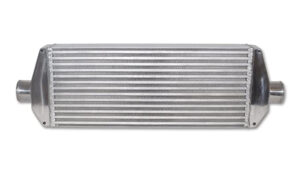
These are commonly found in automobiles as they are cost-effective with effortless installation and maintenance. They depend on airflow through the core and cools the compressed air flowing through them. This is why they must be exposed to the outside environment. These parts have a simple design. The hot air entry from the turbocharger or supercharger takes place via the inlet and comes with an extended core with fins that takes the core to the other end. Air to air intercooler is divided into two main categories: top mount and front mount.
Top Mount Intercoolers
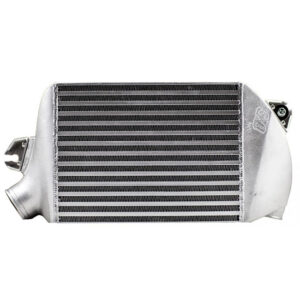
Top mount intercoolers are usually mounted at the top of the engine. Vehicles with top-mount intercoolers have hard scoops that give fresh air to the moving car. The process of air supply to the engine takes place rapidly due to short piping needs that minimizes the turbo lag. Since the vehicles have limited spaces, small intercoolers are installed on these devices. Also, these are susceptible to heat soak due to the distance to the engine on which they are mounted.
Front Mount Intercoolers
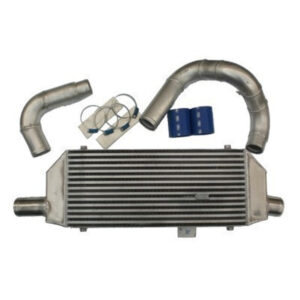
At the front of the car radiators lies these front mount intercoolers. These parts often receive external airflow because of their position. These are bigger in size and often stretch across the front of the vehicle. Those planning to achieve modest horsepower gains must invest in an aftermarket intercooler. Serious horsepower gains are only possible with a front mount intercooler.
Air to Water Intercooler
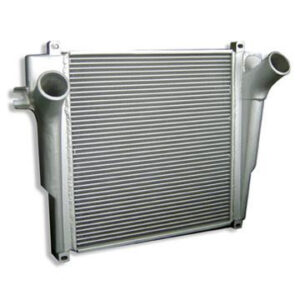
The air to air intercoolers depend on the outer airflow while the air is to water uses water to cool the engine. Air to water intercooler is an amalgamation of various components such as the auxiliary radiator, water pump, water reservoir, thermostat, and water piping.
The primary heat exchange process occurs near the inlet manifold, which prevents it from heating again. The water cools down the air flowing from the turbocharger. Water that aids the process also heats up and moves towards an auxiliary radiator that cools it down before it is sent back to the heat exchanger. The process keeps on repeating again and again.
The air-water intercooler is quite expensive, and the installation process is quite complicated. Also, it demands more maintenance than other forms of intercoolers. This is the reason due to which they are installed in racing cars.
What Causes an Intercooler Failure?
At times, the connecting lines or hose present between the intercooler and the engine leads to leaks, thereby reducing the compressed air pressure. This device undergoes damage due to contaminants that enter it. It is important to identify the issue and get an intercooler replacement from the mechanic.
How to Determine a Bad Intercooler?
A leaky intercooler is unable to supply the air under optimum pressure, thereby affecting the vehicle’s air to fuel ratio. This makes the engine air rich or deficient. If the engine becomes rich, then the exhaust gas will release excessive fuel, ultimately leading to black smoke emission from the engine. This would degrade the fuel economy and performance of the vehicle.
A number of approaches are applied to compensate for the engine leak. In minor cases, it would lead to acceleration lag and extra turbo whine. Major leaks will set the car’s computer on “Home Mode.” As a result, power drops and restricted RPM makes driving impossible.
The air-water intercoolers depend on the coolant of the engine, and mineral deposits on it clog the engine. Clogged intercoolers would surge the temperature of the air entering the engine resulting in a reduction in efficiency. Engine overheating ultimately leads to engine knocking. A damaged intercooler runs speedily and compensates for the pressure loss taking place in the intercooler. Issues with the intercooler must be determined right away and must be replaced. Sometimes the issues get so worse that the entire intercooler kit needs to be installed in the vehicle.
How Much Does an Intercooler Cost?
The cost of an intercooler is affected by several factors. It depends on make, year, & model of the car. In the case of some cars, it costs around $100 while in the case of others it costs $1000.The labor cost is the separate charges that will be levied on you. The intercooler replacement takes almost 3 hours. In some cases, certain parts need to be eliminated before the installation. Carry adequate knowledge and know the charges from the mechanic beforehand. Associate with a well-established car part store like ‘The Auto Parts Store’ while buying the intercooler to obtain the top-quality product. Our intercooler price is nominal and uniquely designed and tested before delivering it to you.
Wrapping Up
Intercoolers play a crucial role in preventing hot air entry within the engine. Identify the signs of a damaged or failed intercooler and get intercooler replacement from the mechanic.
